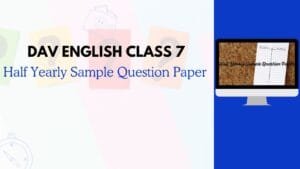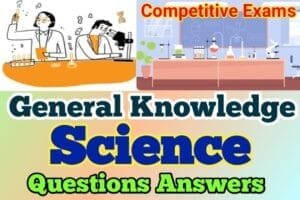Today We will share the English Test: Reading Comprehension (Seen) which is important for class 10 students in 2024. So, start practicing to make yourself familiar with the question pattern for the English Exam.
F.M – 40; Time – 1:30 hrs
Reading Comprehension (Seen)
1. Read the passage carefully and answer the questions that follow:
Swami went to school feeling that he was the worst boy on earth. His conscience bothered him. He wasn’t at all sure if his description of Samuel had been accurate. He felt he had mixed up the real and the imagined. Swami stopped on the roadside to make up his mind about Samuel. Samuel was not such
a bad man after all. Personally he was much more friendly than the other teachers. Swami also felt Samuel had a special regard for him. Swami’s head was dizzy with confusion. He could not decide if Samuel really deserved the allegations made against him in the letter. The more he thought of Samuel, the more Swami grieved for him. To recall Samuel’s dark face, his thín moustache, unshaven cheek and yellow coat filled Swaminathan with sorrow.
A. Write the correct alternatives to complete the following sentences: 1×5=5
(i) Swami was bothered by his-(a) conscience (b) bad habit (c) anger (d) disgust
(ii) Swami’s description of Samuel was-(a) accurate (b) false (c) fictitious (d) vague
(iii) Actually Samuel’s behaviour was-(a) cool (b) hot tempered (c) friendly (d) bad
(iv) The letter was written by Swami’s-(a) mother (b) uncle (c) private tutor (d) father
(v) Swami stopped on the roadside for being-(a) confused (b) late (c) excited (d) ill
B. Complete the following sentences with information from the text: 1×3=3
(i) Other teachers were not as ______________
(ii) The more Swami thought of Samuel ______________
(iii) Swami was filled with sorrow as he ______________
C. Answer the following questions: 2×2=4
(i) Why was Swami confused?
(ii) What was Swami’s personal estimation about Samuel?
2. Read the following lines of the poem and answer the questions that follow:
To grass, or leaf, or fruit, or wall,
The snail sticks close, nor fears to fall,
As if he grew there, house and all Together.
Within that house secure he hides,
When danger imminent betides
Of storm, or other harm besides Of weather
Give but his horns the slightest touch,
His self-collecting pow’r is such,
He shrinks into his house, with much Displeasure.
A. Write the correct alternatives to complete the following sentences: 1×2=4
(i) The snail does not fear to-(a) stick (b) climb (c) eat (d) fall
(ii) The snail hides in its shell when it senses- (a) any movement (b) whispers (c) flood (d) peril
(iii) The poem actually focuses on the-(a) life cycle of a snail (b) private world of a snail (c) food habit of a snail (d) none of these
(iv) The snail has the power of- (a) self-devotion (b) self-collection (c) self-destruction (d) self-denial
B. Answer the following questions: 2×2=4
(i) When does the snail hide inside his house securely?
(ii) How strong is the snail’s self-collecting power?
3. Read the passage carefully and answer the questions that follow:
When the family has finished tea, and gathers round the fire, the cat casually goes out of the room. True life now begins for him. He saunters down his own backyard, springs to the top of the fence, drops lightly down to the other side. He trots across and skips to the roof of an empty shed. His movement becomes lithe and pantherlike. He looks keenly from side to side and moves noiselessly, for he has so many enemies-dogs and small boys with stones.
On top of the shed, the cat arches his back and rakes his claws once or twice through the soft bark of the old roof. He stretches himself a few times to see if every muscle is in full working order. Then, drooping his head nearly his paws, he sends across a call to his kindred. Before long they come, gliding, graceful shadows. No longer are they the meek creatures who an hour ago were mewing for fish and milk. They are now grim fighters.
A. Write the correct alternatives to complete the following sentences: 1×5=5
(i) The cat sends across a call to his-(a) enemy (b) kittens (c) kins (d) master
(ii) At night, as a fighter, the cat is-(a) mild (b) timid (c) serious (d) generous
(iii) Stretching himself, the cat tests his-(a) bones (b) nerves (c) eye-sight (d) muscles
(iv) The cat moves like a-(a) lion (b) panther (c) snake (d) tiger
(v) The cat’s true life begins-(a) in the evening (b) at dawn (c) in morning (d) at noon
B. Complete the following sentences with information from the text: 1×3=3
(i) The cat looks keenly from side to side because _______
(ii) When the family gathers round the fire _______
(iii) The two enemies of the cat are _______
C. State whether the following statements are true or false. Provide supporting expressions for your choice: 2×2=4
(i) At night the cat goes to a lonely place.
SS:
(ii) The cat is never bold and ferocious.
SS.
4. Read the poem given below and answer the questions that follow:
Once I crept in an oakwood-I was looking for a stag.
I met an old woman there-all knobbly stick and rag.
She said: ‘I have your secret here inside my little bag?
Then she began to cackle and I began to quake.
She opened up her little bag and I came twice awake-
Surrounded by a staring tribe and me tied to a stake.
They said: ‘We are the oak treees and your own true family.
We are chopped down, we are torn up, you do not blink an eye.
Unless you make a promise now-now you are going to die.
A. Write the correct alternatives to complete the following sentences: 1×4=4
(i) The old woman was-(a) strong (b) unsteady (c) tired (d) frightened
(ii)… you do not blink an eye’ means that the poet is- (a) protestant (b) stupefied (c) curious (d) indifferent
(iii) The bag of the old lady contained- (a) her stick and rag (b) the oak trees (c) the poet’s secret (d) a staring tribe
(iv) A staring tribe’ refers to-(a) an uncivilized community (b) the poet’s conscience (c) the oak trees (d) a herd of stags
B. Answer the following questions: 2×2=4
(i) Why did the poet come twice awake?
(ii) How did the oak trees accuse the poet?







